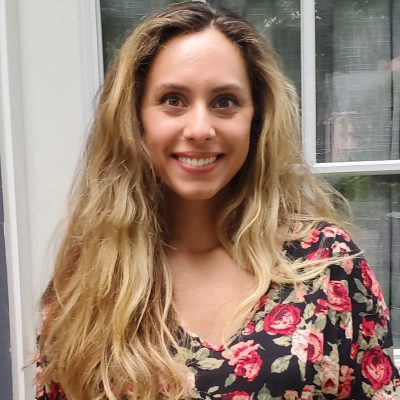Student Spotlight: Lina Bagepalli

September 30, 2019
Lina Bagepalli is a doctoral student in biochemistry, molecular and cell biology from Niskayuna, New York. After earning her bachelor’s degree at Rensselaer Polytechnic Institute, she chose to attend Cornell due to the variety of research opportunities available to graduate students.
What is your area of research and why is it important?
As part of Professor John Lis’ lab at Cornell, we study the mechanisms that regulate gene expression. We develop new methods to dissect the process of transcription and understand the functions of transcription factors. My focus is to investigate the mechanisms by which Heat Shock Factor 1 (HSF1), a master regulator of heat shock response, activates many genes that enable cell survival during stress. I am utilizing synthetic structural RNAs called RNA aptamers to perturb domains of HSF1 and understand their roles in gene expression.
What are the larger implications of this research?
The impact of my research is in two areas. Aptamers provide the tools to impair a protein in a much shorter time without removing it from the cells. This allows us to precisely understand the protein’s functions by avoiding any secondary effects associated with complete protein removal. This research will pave the path for future perturbation strategies necessary to understand fundamental biological processes. High levels of HSF1 have been associated with cancer progression and making HSF1 a prime target for therapy. This research will provide aptamer-based molecular inhibitors against HSF1 that can circumvent the problems associated with traditional drug-based therapies.
What inspired you to choose this field of study?
I have been always fascinated by the detailed mechanisms of macromolecular functions in cells and how their changes lead to the onset of a particular disease. When I joined the Lis lab, the opportunity to dissect the roles of a major transcription factor by applying novel methods attracted me towards the field of transcription. In addition, the potential to develop a tool that could be beneficial for both basic research and therapy propels me to achieve my goals in the lab.
Where did you travel with your Graduate School Conference Travel Grant?
24th Annual Meeting of the RNA Society, Krakow, Poland June 11-16th
How important was obtaining this grant for your professional development?
This grant along with the RNA Travel Award provided me the opportunity to learn about the variety of RNA related research occurring around the world. Attending presentations from both professors and peers allowed me to expand my knowledge and think critically about my research, helping me grow as a scientist. This has been especially important when presenting my current project’s progress. At the conference, I had the opportunity to interact with and build professional relationships with other researchers and graduate students in the RNA biology field. The panel on the future directions of RNA therapeutics was especially interesting and gave me insight into my future career paths.
What are your hobbies or interests outside of your research or scholarship?
Growing up, I always had a fascination with painting and drawing. This has developed into a passion for life-drawing which has been a hobby of mine throughout graduate school. I recently showed some of my work in the Big Red Barn graduate student art exhibit. I also play the piano and the violin and enjoy performing with the Ithaca Community Orchestra. Music and art have provided me with a lot of balance, offering a way to unwind and relax.
Why did you choose Cornell to pursue your degree?
Cornell’s department of molecular biology and genetics (MBG) was at the top of my list for prospective graduate programs due to the variety of research opportunities and projects available to graduate students. In addition, when I interviewed at Cornell, I found the MBG community at Cornell to be welcoming, and students were very supportive of one another. I have learned a lot in the last few years and am very happy that I came to Cornell to pursue my Ph.D.
